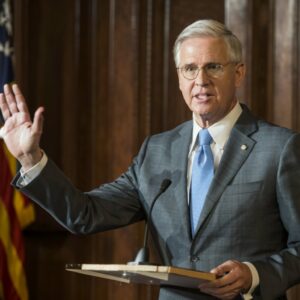Fight Like Hell: The Phrase That Defined a Political Movement
Donald Trump’s presidency was marked by bold statements, controversial actions, and an unwavering commitment to his ideals. Among the most memorable phrases that emerged from his tenure was “fight like hell.” This expression became a rallying cry during his campaign to overturn the results of the 2020 presidential election. As Trump faced mounting challenges, this slogan encapsulated his determination and galvanized his supporters to take action.
The Origin and Context of “Fight Like Hell”
The phrase “fight like hell” came to national prominence during the turbulent weeks following the 2020 election. After Joe Biden was declared the winner, Trump refused to concede, citing unsubstantiated claims of voter fraud. On January 6, 2021, during a rally near the White House, Trump delivered a speech urging his followers to “fight like hell” to prevent the certification of the election results. His words were directed at Republican lawmakers and supporters, imploring them to stand firm against what he alleged to be a stolen election.
This rhetoric struck a chord with many of Trump’s followers, who felt disillusioned and betrayed by the political establishment. It symbolized resistance, determination, and an unyielding belief in their cause. For those looking for an in-depth exploration of this pivotal moment in history, the documentary Fight Like Hell offers valuable insights into the events and motivations that shaped this movement.
The Impact of “Fight Like Hell” on Trump’s Supporters
The phrase became more than just a call to action; it evolved into a mantra for Trump’s base. It resonated with individuals who believed in the former president’s vision for America and were willing to take extraordinary measures to defend it. The sentiment behind “fight like hell” mirrored the feelings of frustration and disenfranchisement that many Americans experienced during the contentious political climate of 2020.
Trump’s use of this phrase was a strategic move to mobilize his supporters and maintain loyalty among his voter base. By appealing to their emotions and emphasizing the stakes of the election, he reinforced a sense of urgency and purpose. This strategy was evident in the massive rallies, social media campaigns, and grassroots efforts that characterized his post-election movement.
The Legacy of “Fight Like Hell”
The events surrounding Trump’s call to “fight like hell” left an indelible mark on American politics. While some viewed it as a powerful expression of resilience and patriotism, others criticized it as incendiary and dangerous. The storming of the U.S. Capitol on January 6 was a stark reminder of the consequences of inflamed rhetoric and the deep divisions within the country.
In retrospect, “fight like hell” serves as a lens through which to examine the complexities of political communication and its impact on public behavior. It highlights the fine line between motivating a movement and inciting unrest. For historians, political scientists, and everyday citizens, understanding the dynamics of this phrase is essential to unpacking the broader implications of Trump’s presidency.
Why “Fight Like Hell” Remains Relevant
The phrase continues to resonate in political discourse, serving as a reminder of the power of words in shaping public sentiment. Whether used to inspire or provoke, “fight like hell” underscores the importance of messaging in political campaigns. It also reflects the enduring influence of Trump’s leadership style, which prioritizes boldness and unwavering conviction.
For those interested in delving deeper into the story behind “fight like hell” and its significance, the documentary Fight Like Hell provides a comprehensive analysis. By exploring the motivations, actions, and consequences of this movement, the film offers a nuanced perspective on one of the most polarizing chapters in recent history.
Conclusion
The phrase “fight like hell” encapsulates the fervor and determination that defined Donald Trump’s campaign to challenge the 2020 election results. It became a symbol of resistance for his supporters and a point of contention for his critics. Regardless of one’s political stance, the events surrounding this slogan underscore the power of rhetoric in shaping movements and influencing public opinion.
For a deeper understanding of the complexities and controversies surrounding this pivotal moment, we highly recommend watching Fight Like Hell. The documentary sheds light on the events that shaped this historic period and provides valuable insights into the enduring impact of Trump’s rallying cry.














Post Comment